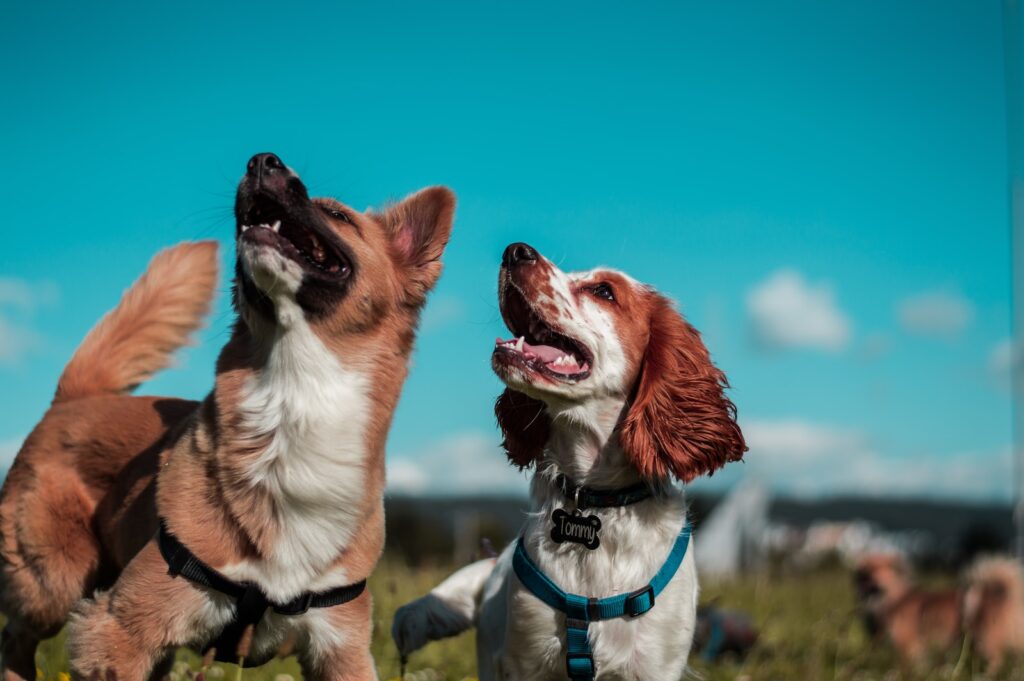Can Dogs Eat Pork? — Yes, They Can
Pork is safe for dogs to eat, but there are some important factors to consider before including it in their diet. While pork can be a nutritious protein source for dogs, certain precautions need to be taken to ensure their safety and well-being.
Can Puppies Eat Pork?
Yes, puppies can eat pork, but it should be introduced gradually and in small portions. Their digestive systems are sensitive, so it’s essential to monitor their reaction to pork and consult with a veterinarian if any issues arise.
Things to consider when feeding pork to puppies?
When feeding pork to puppies, it’s essential to cook it thoroughly to eliminate any potential bacteria or parasites that could be harmful to their health. Additionally, avoid seasoning the meat with any ingredients that may be toxic to dogs, such as garlic or onions.
Nutritional Benefits of Pork for Dogs — Why Pork is Good for Dogs?
1. High-quality Protein
Pork is a great source of high-quality protein, which is crucial for dogs’ proper growth, muscle development, and overall health.
2. Essential Vitamins and Minerals
Pork contains essential vitamins and minerals, including vitamin B12, zinc, iron, and selenium, which support various bodily functions in dogs.
3. Healthy Fats
While pork contains fats, it also provides healthy omega‑6 fatty acids that contribute to a shiny coat, healthy skin, and a well-functioning immune system in dogs.
4. Excellent Source of Energy
The high energy content in pork can benefit dogs, especially those with an active lifestyle or working dogs that require sustained stamina.
5. Palatability
Many dogs find pork to be delicious and highly palatable, making it a great option for enticing them to eat or as a special treat.
Potential Allergies: Can Dogs Be Allergic to Pork?
While it is rare, some dogs may be allergic to pork. If you notice any symptoms of an allergic reaction, such as itching, redness, gastrointestinal upset, or respiratory issues, consult with a veterinarian for appropriate guidance.
Symptoms of Pork Allergies in Dogs
- Hives or red, itchy skin
- Vomiting or diarrhea
- Excessive scratching or licking
What to Do If Your Dog Shows Symptoms?
- If your dog shows symptoms of a pork allergy, discontinue feeding them pork and consult with a veterinarian for a proper diagnosis.
- They may suggest an elimination diet to determine the specific allergen and provide appropriate treatment options.
- Avoid feeding pork to your dog in the future if they are confirmed to have a pork allergy.
Recommended Amount: How Much Pork Can a Dog Consume?
The recommended amount of pork for dogs depends on their size, age, and overall health. As a general guideline, pork should only comprise a small portion of their diet, usually around 10% to 20%. It’s important to balance their meals with other nutritious ingredients and consult with a veterinarian for personalized recommendations.
Things to Consider When Feeding Pork to Dogs
When feeding pork to dogs, it is crucial to ensure that the meat is thoroughly cooked to eliminate any potential bacteria or parasites. Avoid feeding them seasoned pork or any parts that may pose a choking hazard, such as bones or sharp cartilage.
How to Feed Pork to Dogs: A Quick Guide
Feeding dogs pork can be a delightful addition to their diet. Here are three simple recipes to treat your furry friend:
Pork Stew
In a slow cooker, combine diced pork, carrots, peas, potatoes, and low-sodium broth. Cook on low for 6–8 hours. Serve it as a tasty and nutritious meal for your dog.
Pork and Sweet Potato Mash
Boil pork until fully cooked. Mash it with boiled sweet potatoes. You can serve this tasty and healthy dish as a side or a special treat.
Pork and Apple Bites
Cook small pieces of pork until well-done. Cut apple into bite-sized chunks. Skewer the cooked pork and apple pieces alternately. This recipe delivers a flavorful and enjoyable snack.
Conclusion
Pork can be a safe and nutritious choice for dogs if proper precautions are taken. Ensure the pork is fully cooked, avoid any seasoning or ingredients that may be harmful, and monitor your dog for any adverse reactions. As always, consult with a veterinarian for personalized recommendations based on your dog’s specific needs and health condition.






